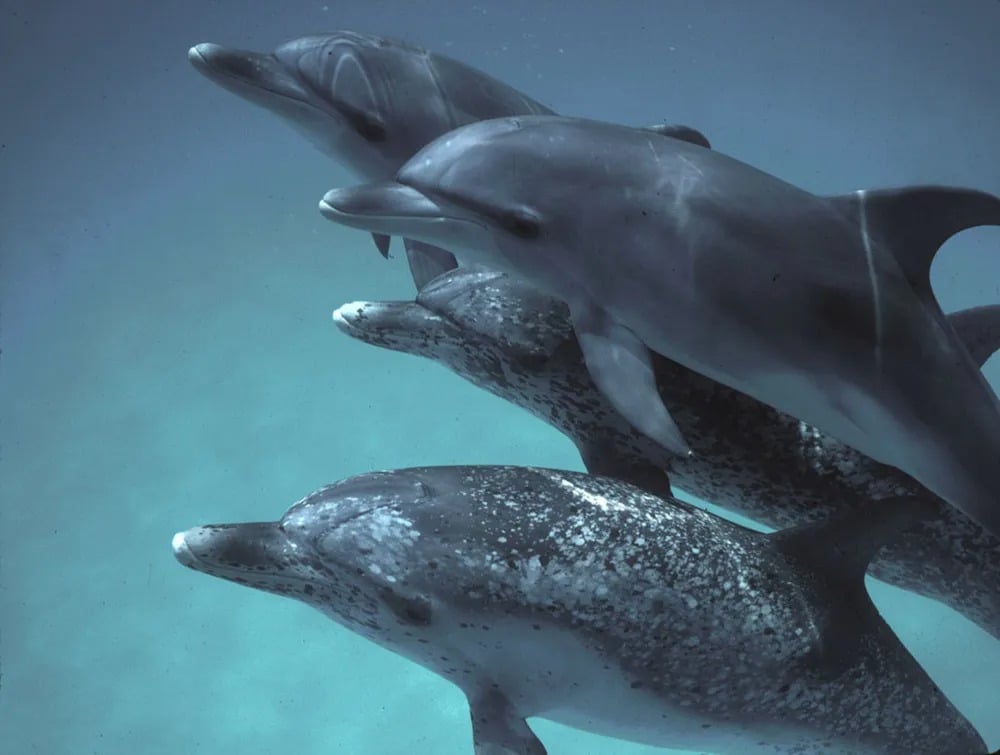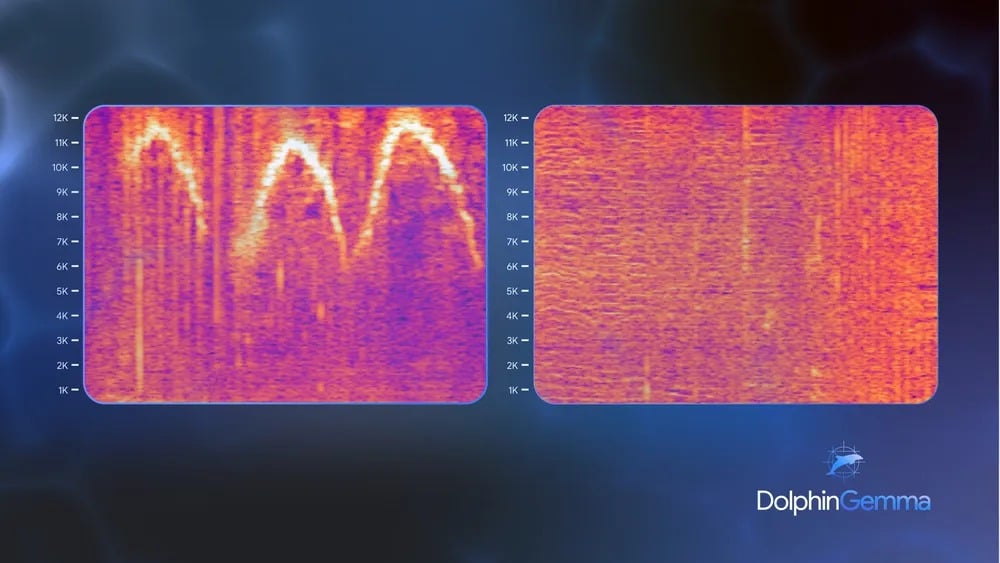
Dolphin communication has always intrigued scientists. The intelligent mammals use a range of noises to work together and stay connected. Some sounds even act like names, helping dolphins recognize one another. Now, researchers at Google and Georgia Tech hope to understand dolphin speech — and maybe even talk to them — with the help of Artificial Intelligence (AI).
The scientists began by training an AI language model. Called DolphinGemma it used 40 years of data from a pod of Atlantic spotted dolphins in the Bahamas. The recordings and videos were collected by researchers at the Wild Dolphin Project (WDP). They captured not only the sounds dolphins made but also the context in which they were used.

Whistles (left) and burst pulses (right) generated during early testing of DolphinGemma (Credit: Googleblog/ CC-BY-SA-2.0)
Once ready, DolphinGemma could produce sounds similar to the recordings. About half were just ocean noise. The rest mimicked dolphin clicks, whistles, and burst pulses. Burst pulses are tightly spaced clicks that sound like buzzing or squeaking. Dolphins use them to talk, play, and find their way.
The next step is to test if these AI-generated sounds work on dolphins. To do this, the team is building a device nicknamed CHAT. Once ready, two divers will wear CHAT and swim alongside the dolphins. CHAT will play an AI-generated dolphin whistle to "ask" for an object, like a scarf. At the same time, the divers will pass the object back and forth. If a dolphin mimics the whistle, the divers will reward it with the scarf.
Thea Taylor is the director of the Sussex Dolphin Project. She is not part of the DolphinGemma experiment but is intrigued by it. She cautions that the researchers must be sure the dolphins are communicating — not just copying sounds to get the object.
"We have to think whether that's actually an understanding of language — or whether it's the same as teaching a dog to sit because they get a reward," Taylor told the Scientific American.
Regardless of the outcome, the DolphinGemma team hopes their project will show how smart dolphins are. Learning more about their communication could change how we see and treat them.
"Maybe [understanding them] would make us connect differently — and realize that these species have the right to a healthy existence," says WDP founder Dr. Denise Herzing.
Resources: Newatlas.com, Smithsonianmag.com, Googleblog